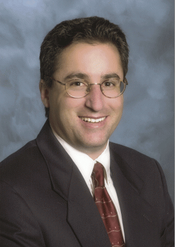Andrew Freedman: Unterschied zwischen den Versionen
K |
K |
||
| Zeile 126: | Zeile 126: | ||
{{DEFAULTSORT:Freedman, Andrew}} | {{DEFAULTSORT:Freedman, Andrew}} | ||
| − | [[Kategorie: | + | [[Kategorie:Person]] |
| − | [[Kategorie: | + | [[Kategorie:Männlich]] |
| + | |||
[[Kategorie:American Academy of Pediatrics]] | [[Kategorie:American Academy of Pediatrics]] | ||
[[Kategorie:Jüdisch]] | [[Kategorie:Jüdisch]] | ||
| + | [[Kategorie:Urologe]] | ||
[[Kategorie:Von CircLeaks]] | [[Kategorie:Von CircLeaks]] | ||
Version vom 29. März 2020, 10:40 Uhr
(Dieser Artikel wurde noch nicht aus dem Englischen übersetzt oder enthält noch englische Textpassagen. Bitte beziehe dich vorerst auf die Informationen im englischen Artikel. Klicke dazu in der IntactiWiki-Navigation im Abschnitt "In anderen Sprachen" auf "English".)

|
| Member of: |
| AAP Circumcision Task Force 2012 |
| Associates with: |
| American Academy of Pediatrics |
Andrew Freedman is a urologist at the Cedars-Sinai Medical Center in Los Angeles.[1] He was one of the members of the "circumcision task force" at the American Academy of Pediatrics (AAP) which released a new policy statement on circumcision, which alleges that "the benefits outweigh the risks".[2]
Religious Conflict of Interest
Freedman is Jewish (Why is this important?), and has a son whom he circumcised himself on his parents' kitchen table on his 8th day of life.[3]According to Freedman, the AAP did not incorporate recommendations on Metzitzah B'peh (Jewish tradition of oral suction of the wound of a circumcised baby's penis), because the AAP taskforce on circumcision reasoned that there are too few done, and practitioners of the tradition will continue whether the AAP recommended against it or not.[4] Freedman occasionally works with a mohel who practices metzitzah b'peh using a tube in order to prevent genital contact.[5]
Zitate
| ” | Freedman Circumcises His Own Son I circumcised him myself on my parents’ kitchen table on the eighth day of his life. But I did it for religious, not medical reasons. I did it because I had 3,000 years of ancestors looking over my shoulder. (The Jewish Week)[6] |
| ” | No Medical Reasons I didn't make any excuses that this was to avoid a UTI, or for medical reasons. My rationale was this: As a Jewish male in a long line of tradition, I didn't want to be the link in a chain that broke. (L.A. Times)[7] |
| ” | His Patients As a practicing pediatric urologist, 20% of the patients I will see today are here because of something related to their circumcision. (American Medical News)[8] |
| ” | Benefits and Risks The procedure has some modest benefits and some modest risks. Families shouldn’t “feel like they’re harming their child no matter what they decide to do.” (American Medical News)[9] |
| ” | Procedure is not essential There’s no single right or wrong answer. Your child’s going to be fine one way or the other. (FoxNews)[10] |
| ” | When the benefits aren’t enough to justify it Circumcision cuts across cultural, religious, medical and aesthetic lines. We don’t see ourselves as partisan in the battle over circumcision. It might be better to be a vegetarian, or to double-knot your shoelaces, but it’s not for us to tell people what’s in the best interest of their children. The benefits aren’t enough to justify it if it doesn’t fit with the values of a particular family. (The Jewish Week)[11] |
| ” | Attitude towards Intactivists I can’t really say [Why is there such negative sentiment against circumcision]. However, I can tell you that I’ve received thousands of e-mails over the years from parents telling me that circumcision is a terrible thing to do to a child, because of what they see as an overriding ethical principle of maintaining bodily integrity until the age of consent. This is where there’s such a big divide between America and Europe; it’s much more accepted here, whereas in Europe there is no tradition, outside of the two religious minorities [Jews and Muslims], of circumcision. (The Jewish Week)[12] |
Einzelnachweise
- ↑ REFnews Merwin, Ted (19. September 2012)."Fleshing Out Change On Circumcision", The Jewish Week. Abgerufen 23. September 2012.
Zitat:...The Jewish Week spoke to Dr. Andrew Freedman, a urologist at the Cedars-Sinai Medical Center in Los Angeles.
- ↑ REFnews Merwin, Ted (19. September 2012)."Fleshing Out Change On Circumcision", The Jewish Week. Abgerufen 23. September 2012.
Zitat:Freedman was one of the members of the task force that issued the new, qualified endorsement of circumcision.
- ↑ REFnews Merwin, Ted (19. September 2012)."Fleshing Out Change On Circumcision", The Jewish Week. Abgerufen 23. September 2012.
Zitat:I circumcised him myself on my parents’ kitchen table on the eighth day of his life. But I did it for religious, not medical reasons.
- ↑ REFnews Merwin, Ted (19. September 2012)."Fleshing Out Change On Circumcision", The Jewish Week. Abgerufen 23. September 2012.
Zitat:...in the end decided not to, since there are so few that are done that way in this country, and they will continue to be done that way whether or not we recommend against it.
- ↑ REFnews Merwin, Ted (19. September 2012)."Fleshing Out Change On Circumcision", The Jewish Week. Abgerufen 23. September 2012.
Zitat:I do work occasionally with an Orthodox mohel who uses a tube so that there is no oral-genital contact.
- ↑ The Jewish Week, Fleshing Out Change in Circumcision by Ted Merwin 09/19/12
- ↑ L.A. Times, Delicate Decision by Marnell Jameson 03/31/2008
- ↑ American Medical News, Will male circumcision guidance reverse trends in the procedure? By Christine S. Moyer 09/03/2012
- ↑ American Medical News, Will male circumcision guidance reverse trends in the procedure? By Christine S. Moyer 09/03/2012
- ↑ Circumcision on the decline? What parents need to know about the procedure By Julie Revelant 01/02/2013
- ↑ The Jewish Week, Fleshing Out Change in Circumcision by Ted Merwin 09/19/12
- ↑ The Jewish Week, Fleshing Out Change in Circumcision by Ted Merwin 09/19/12